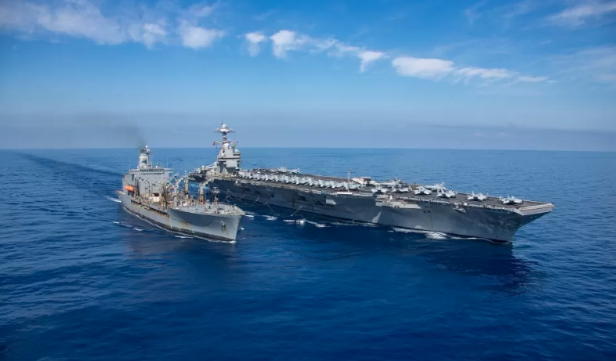Israel
U.S. Role Questioned in Ongoing Israel War Guardianship

Amid the perennial tumult of the Israel War, the United States reprises its complex role as Israel’s steadfast protector, navigating the persistent haze of conflict that defines the Middle Eastern geopolitical landscape. As fresh violence erupts, thrusting the region into the global spotlight, critical eyes turn to the U.S. to decipher its next move in this enduring drama. This resurgence of conflict poses the critical question anew: To what extent will American intervention shape the future of this strife-ridden region?
To understand the depths of America’s commitment, one must journey through the corridors of time, where the echoes of 1967’s Six-Day War, the Yom Kippur stand-off of ’73, and the myriad skirmishes that punctuate the history books, shape today’s landscape. Each conflict, each act of aggression, and each plea for peace stitches the fabric of the current narrative—a narrative where the United States’ military might is juxtaposed with a wariness of entanglement’s price.
Amidst the debris-laden streets of Gaza and the dimly lit alleys of Jerusalem, the air is rent with the lament of lives torn asunder by the relentless machinery of conflict. In these historic thoroughfares, the wails of bereaved mothers become the chorus of a land besieged by sorrow. Here, the tales of the innocents, caught in the merciless embrace of war, flit about like the shards of a grenade, embedding themselves in the global psyche.
As the relentless conflict pulverizes stone and bone, a pall of dust descends, a grim shroud over both the living and the departed. It is a dust unprejudiced, coating the dreams of the survivors as impartially as it does the ruins of their existence. The fallen masonry of their homes, razed by forces governed by distant agendas, pays homage to no one, recognizing neither the innocence of youth nor the wisdom of age.
In this crucible, the people of Gaza and Jerusalem carve out a resilience that is almost beyond comprehension. They are the custodians of an unyielding hope, the flesh-and-blood testament to the tenacity of the human spirit. Amidst the rubble, they cobble together semblances of daily life, their survival strategies as ingenious as they are heartbreaking. In their resolve, there lies a profound lesson in adaptability, a master class in the art of persevering through the darkest of times.
Amidst this backdrop of despair, the strategists in Washington, ensconced in their halls of power, shuffle the deck of geopolitical interests. The U.S.’s unwavering support, crystallized in billions of military aid and the swift deployment of defensive systems, speaks to an alliance forged not merely in sentiment but in the strategic calculus of regional stability.
Yet the analysts, those like Seth G Jones, whisper of reluctance, of the risks of direct engagement. The American military’s leviathan footprint in the Eastern Mediterranean, the presence of carrier strike groups—these are tools of diplomacy as much as war. The saber’s rattle is, after all, sometimes preferable to its swing.
As missiles intercept over the Red Sea and American-made jets roar over Gaza, the critical observer must question the narrative being sold. The assurances of protection, the promise of a defensive hand—these are weighed against the knowledge that past interventions have often shackled America to a conflict long after the last bullet was fired.
Yet the power of an image—the sight of a Patriot missile battery rising against the sky, the THAAD system standing ready—these are messages, potent and clear. The U.S., it seems, would rather show its strength than use it, a deterrent to some, a provocation to others.
It is within the lived reality of the Israeli and Palestinian, the soldier and the civilian, that the true narrative unfolds. The land, scarred by the passage of tanks and the digging of trenches, tells its own story. One does not need to look far to see the weariness in the eyes of those who call this place home—a weariness born of too many nights spent listening for the whistle of incoming fire.
As President Biden navigates the tightrope of diplomacy and defense, the world watches, waits, and wonders about the implications for tomorrow. Will the commitment to Israel’s defense hold steady in the face of mounting casualties? Or will the narrative shift, as it often does, with the winds of political expediency?
The U.S.’s guardianship over Israel is not without its bounds, its red lines drawn not just in the sands of Middle Eastern deserts but in the court of public opinion, in the hallways of Congress, and in the silent corridors of conscience. The question remains, as it has through the ages, how far will America go? And at what cost?
In the grand chess game of international politics, the pieces are in motion, and the kings and pawns alike hold their breath, waiting to see the next move. As history watches, pen poised above the unending chronicle of human striving, one wonders if we are on the verge of a new chapter or merely a repetition of the same old story.












You must be logged in to post a comment Login